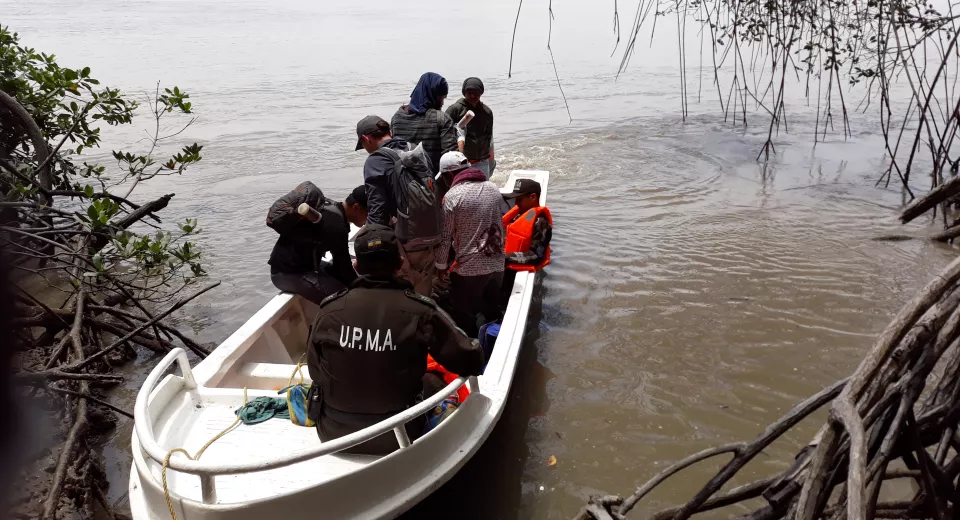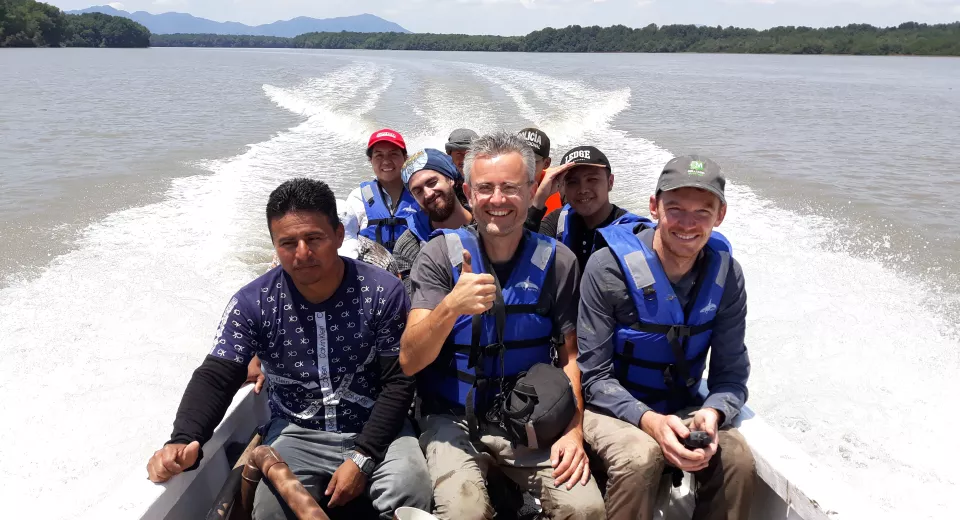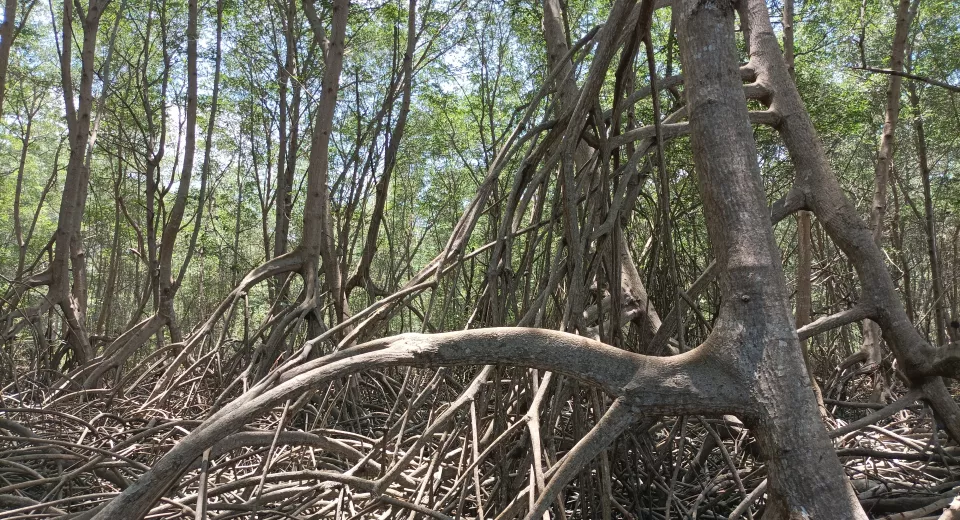WETCOAST
The WETCOAST project develops new scientific knowledge to optimize the construction of tidal marshes and mangroves in estuaries and coastal areas. The aim is to achieve natural solutions (NBS) for climate warming (via carbon storage) and coastal protection (reduction of coastal erosion).
Within this scope, WETCOAST will:
- Develop an innovative ‘triple technique approach’ that combines point-scale quantification of different carbon forms in the ecosystem with landscape-scale quantification of carbon storage and protection against coastal erosion using drones on the one hand, and quantification of carbon flows via air and water on the other.
- Develop an innovative numerical model that can be used to improve the design of NBS projects so as to achieve optimal functionality.
These innovations will be developed in two ‘living labs’ for large-scale NBS projects:
- Development of tidal marshes in a temperate climate on 465 ha in the Scheldt estuary (Hedwige-Prosperpolder project, Belgium and the Netherlands); and
- Development of approximately 50 ha of new tropical mangroves in the Guayas estuary (AquaForest project, Ecuador).
WETCOAST will result in the development of essential knowledge to optimise the design of tidal nature reserves, both for climate adaptation and climate mitigation. In this way we create a unique knowledge base that can connect the future creation of tidal nature reserves with the carbon market.
This will offer Flemish innovators a competitive advantage: natural coastal defense and carbon storage are integral parts of the road to carbon-neutral coastal development. In the context of sustainable coastal development, optimisation of ecosystem services, such as carbon storage and coastal protection, is implicitly expected by customers. Furthermore, carbon storage can also be valorised through the sale of carbon credits.
Partners: University of Antwerp (lead); KU Leuven; and VUB.
With the support of: VLAIO
Contact: Kinnie De Beule






